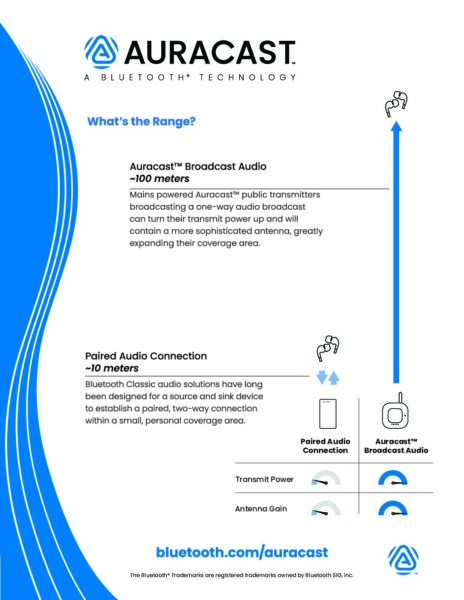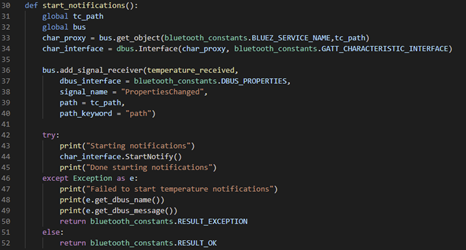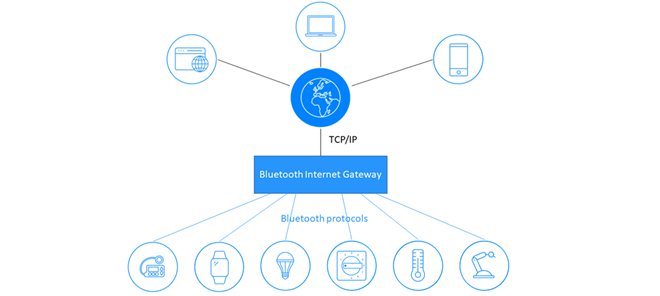
The release of Bluetooth® Mesh has paved the way for the rise of connected lighting as the key use case in building automation. One of the driving forces behind this momentum is the added benefit of using a Bluetooth wireless lighting grid as a platform for additional services.
In a truly smart building, lights can be much more than just lights. These buildings are supported by lighting systems that have the potential to act as a distributed network of small computers and are capable of hosting all sorts of other applications, enabling the creation of true smart building services. Inherent interoperability, fundamental device behavior models, and value-added capabilities are all critical to making the concept of the true smart building a reality.
Lighting and location services companies are working together to support additional services like wayfinding, asset tracking, point-of-interest information solutions, and space utilization services — all as part of the deployment of the lighting system.
Two recent case studies help illustrate how the use of connected lighting as a platform can maximize the return on lighting infrastructure investments and enable a building to deliver unique experiences and services to its occupants and visitors.
The Art of Beacons
The Van Gogh Museum in Amsterdam recently replaced their existing halogen lighting systems with Bluetooth enabled LED modules. In doing so, the museum’s lights are now controlled by Bluetooth switches. The deployment wasn’t as difficult as you might think – it only took two employees a single evening to switch out 100 units, which resulted in no disruption to the museum’s next-day operations.
The museum also installed Bluetooth sensors to broadcast data, including occupancy, lux levels, temperature, and humidity information to help monitor and control the indoor environment, which is critical to preserving the museum’s priceless artifacts. The luminaries, sensors, and gateways are all enabled as beacons, which allows the museum to offer wayfinding services to visitors and point-of-interest information based on where they are and what piece of art they’re viewing, all through the museum’s app.
Targeting Customer Experience
When remodeling its stores, Target switched out its traditional lights with LED lights and installed Bluetooth beacons in the fixtures to enable location and wayfinding solutions that help customers navigate the store and find products faster and easier via the Target app. Once the project is complete, this will be one of the largest deployments for a lighting-based indoor positioning system.
According to Proximity Directory, 75 percent of the top 20 U.S. retailers have already deployed location services, and this trend is predicted to increase significantly over the next five years. The 2018 Bluetooth® Market Update predicts that, by 2022, we can expect to see more than 400 million Bluetooth Location Services devices shipping each year.
In addition, with the January 2019 release of a new direction finding feature that will enable Bluetooth devices to determine the direction of a Bluetooth signal, Bluetooth proximity solutions will soon understand device direction while Bluetooth positioning systems will be able to achieve down to centimeter-level location accuracy, thereby enabling the technology to address the full spectrum of positioning use cases and further establishing Bluetooth as the smart building protocol of choice.
For years, Bluetooth technology has been the global standard for reliable, secure wireless connectivity. Now, with the capability to create large-scale, smart lighting networks and recent enhancements to Bluetooth® Location Services, lighting systems can double as a wireless platform and support a range of building services. In fact, it’s expected that 40 percent of all connected endpoints will be smart lighting-based by 2021.
As facilities transition to LED, they’re also taking the opportunity to look for ways to get even more out of their lighting investment. By virtue of the multi-service nature of the Bluetooth radio, a smart lighting system built on Bluetooth can also function as a platform for enhanced location services, maximizing return and future proofing your smart building investment.
![]()
FEATURED DOWNLOAD
Enhancing Bluetooth Location Services with Direction Finding
A new Bluetooth Direction Finding feature allows devices to determine the direction of a Bluetooth signal, thereby enabling the development of Bluetooth proximity solutions that can understand device direction as well as Bluetooth positioning systems that can achieve down to centimeter-level location accuracy.






















![2312 CES Handout Images FINAL existing pdf 464x600[1]](https://www.bluetooth.com/wp-content/uploads/2024/01/2312_CES_Handout-Images_FINAL-existing-pdf-464x6001-1.jpg)



















